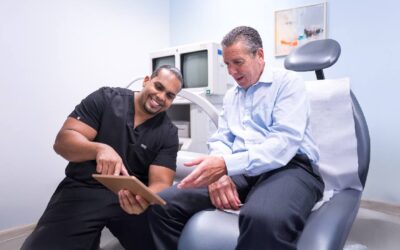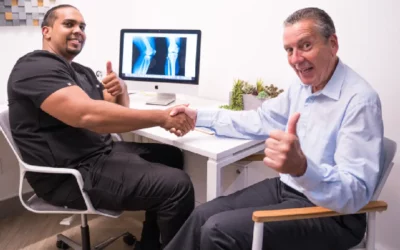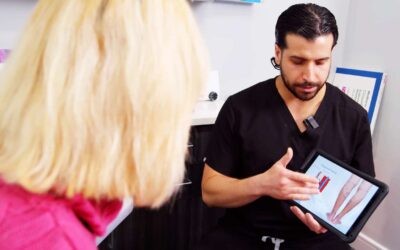What is a Doctor Who Specializes in Veins Called? We Answer the Top Vein-Related FAQs in NJ
What is a doctor who specializes in veins called?
If you have spider veins or varicose veins, you might be looking for a doctor specializing in veins. Well, a doctor specializing in veins is officially called a “phlebologist,” but they’re colloquially known as vein doctors or vein and vascular specialists. The term “phlebologist” comes from “phlebology,” the branch of medicine concerned with vascular health and conditions, such as spider veins, varicose veins, and venous insufficiency.
What does a phlebologist do?
A phlebologist is a doctor specializing in the diagnosis and treatment of vascular conditions, including spider veins and varicose veins. When you consult a vein doctor, they will examine your leg veins, review your medical history, discuss your symptoms, run ultrasound scans, and provide minimally invasive treatments for your vein conditions, such as spider veins, varicose veins, venous insufficiency, leg heaviness, restless leg syndrome, and deep vein thrombosis
What is the main cause of varicose veins?
Chronic venous insufficiency is the primary root cause of most vein problems, including varicose veins. Healthy veins consist of valves that act as one-way doors, allowing blood to flow towards the heart but preventing it from flowing backward due to gravity. Venous insufficiency is a circulatory disorder wherein your vein valves collapse or malfunction, so gravity forces blood to flow backward and accumulate in the leg veins. The continued accumulation of blood in leg veins leads to excessive vascular dilation and the formation of bulging varicose veins.
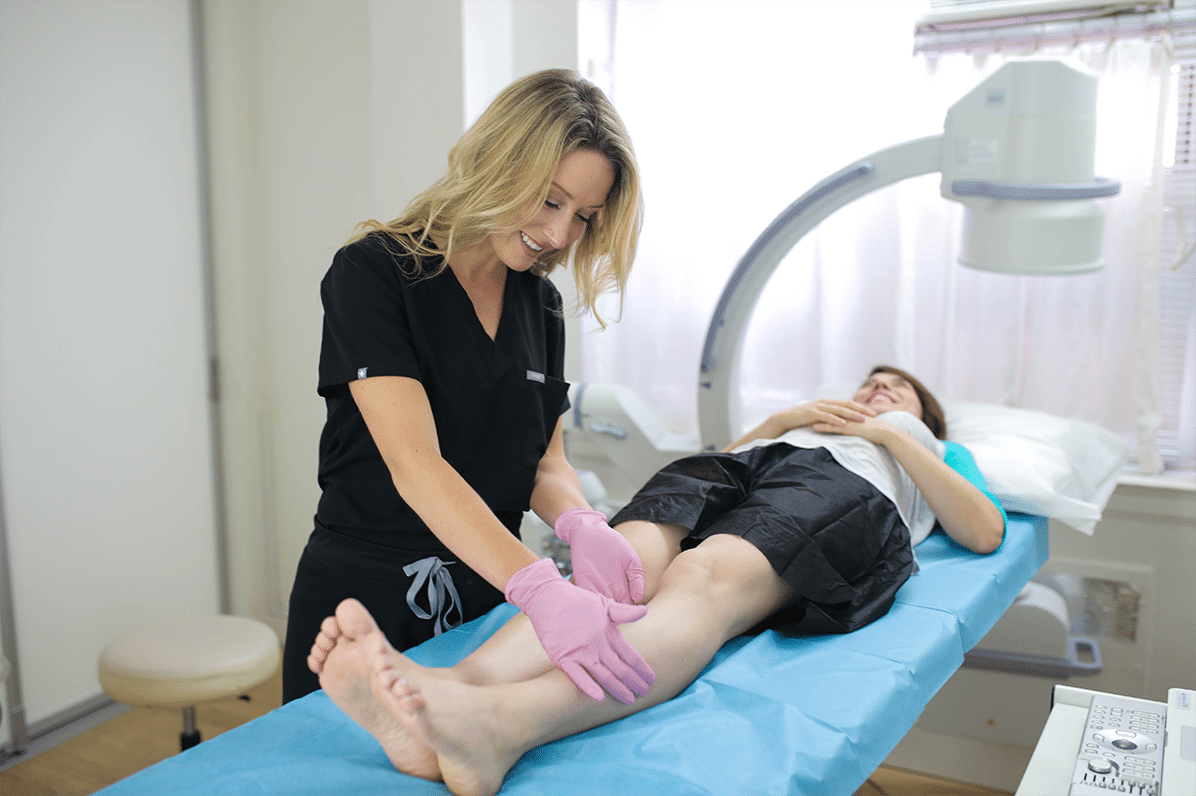
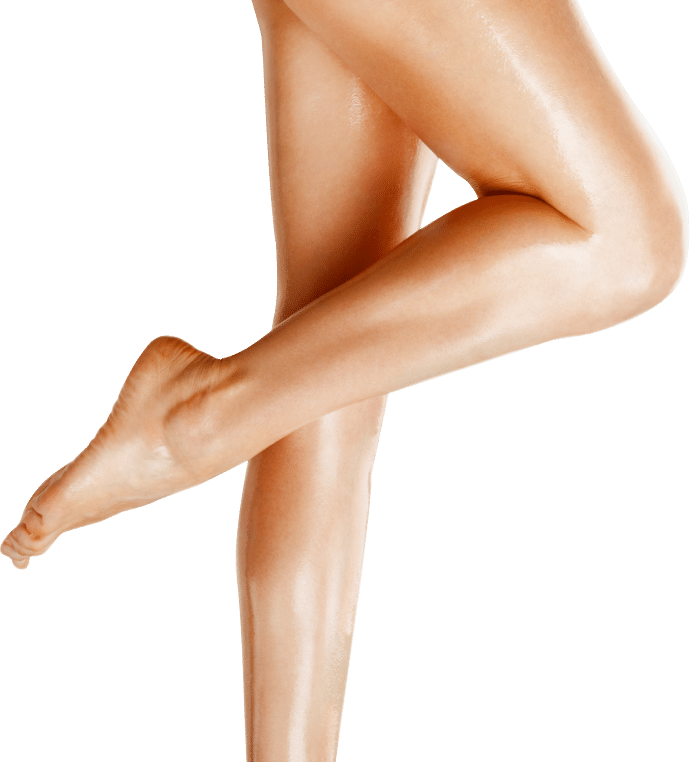
BOOK AN APPOINTMENT
Do you have any symptoms? Consult now with one of the Best Vein Specialist in New Jersey
What are the symptoms of vascular problems?
Chronic venous insufficiency leads to numerous signs and symptoms that gradually worsen with time. The initial signs and symptoms of vein disease are fairly benign, and they’re often misdiagnosed as signs of aging. You may experience leg heaviness, restless leg syndrome, throbbing leg veins, leg swelling, and frequent leg cramps, especially at the end of the day or after long periods of sitting or standing still. The most prominent early signs of vein disease include spider veins and varicose veins on your legs.
What happens if varicose veins are left untreated?
If varicose veins are left untreated, blood will continue accumulating in your leg veins, leading to excessive vascular dilation and the weakening of vein walls. Over time, the varicose veins might be so overextended that they burst upon impact, leading to profuse bleeding, for which you have to be taken to an emergency room. Furthermore, you may also experience the advanced complications of venous insufficiency, such as skin discoloration, rust-colored appearance on your skin, leg ulcers (non-healing wounds), and blood clots in leg veins (deep vein thrombosis).
Why do varicose veins get worse with age?
Age is one of the primary risk factors for varicose veins. As you grow older, your vein valves weaken because of regular wear and tear, increasing the risk of venous insufficiency. Age also leads to increased weight, fluctuating hormones, and other factors that weaken the vein valves. If you already have varicose veins, your specific conditions will also worsen with age if left untreated. That’s because venous insufficiency is a chronic condition — blood continues accumulating in your leg veins, leading to worsening symptoms.
How can I stop varicose veins from getting worse?
If you want to stop varicose veins from getting worse, you must implement lifestyle changes that improve blood circulation. You should ideally wear compression stockings throughout the day to push the accumulated blood towards your heart, engage in cardiovascular exercises that work your calf muscles to push the accumulated blood, elevate your legs while sitting to facilitate optimal blood flow, and remain active. However, these lifestyle changes can only provide temporary relief from the worst symptoms of varicose veins — not treat the underlying problem.
Does drinking water help varicose veins?
Drinking water allows you to remain hydrated, which is essential for overall health and vascular health. Staying hydrated helps you maintain optimal blood circulation and strengthens your vein walls, thus minimizing the risk of vein disease. However, if you already have varicose veins, drinking water won’t fix the damaged vein valves or alleviate your problems. If you have varicose veins or other symptoms of vein disease, you must seek minimally invasive varicose vein treatments from a reliable center for vein treatment in New Jersey.
What is the best exercise for varicose veins?
Cardiovascular exercises, such as running, swimming, cycling, and yoga, are ideal for patients with varicose veins and spider veins. Cardiovascular exercises improve blood circulation and activate your calf muscles, thereby making your legs push the accumulated blood towards the heart. As such, these exercises can alleviate the worst symptoms of vein disease, making your legs feel lighter and calmer. However, the relief is only temporary, and you need medical treatments from vein doctors in NJ for long-lasting relief.
What’s the best treatment for varicose veins?
Radiofrequency ablation, endovenous laser ablation, and venaseal are some of the best treatments for varicose veins. During the ablation procedures, the vein doctor inserts a catheter into the diseased saphenous vein under ultrasound guidance. When activated, the catheter generates thermal energy or laser energy to collapse or destroy the diseased vein, rerouting the accumulated blood into healthier leg veins. After the primary vein treatment, the vein doctor may use ambulatory phlebectomy to remove superficial varicose veins — this involves the physical extraction of varicose veins through small incisions on the skin’s surface.
What is the best vein clinic near me?
If you have spider veins, varicose veins, or other signs and symptoms of venous insufficiency, please schedule an appointment at our centers for vein treatment in New Jersey. We have vein treatment centers in Clifton, Paramus, and Woodland Park, led by highly-skilled and board-certified vascular doctors specializing in the latest and safest vein treatments. We also provide free insurance verification before your procedure.
NJ Vein Doctors
Meet our team of New Jersey Vein Treatment Specialists
Vein Treatments are covered by most major medical insurances, including Medicare. Call us today to verify your insurance for FREE >
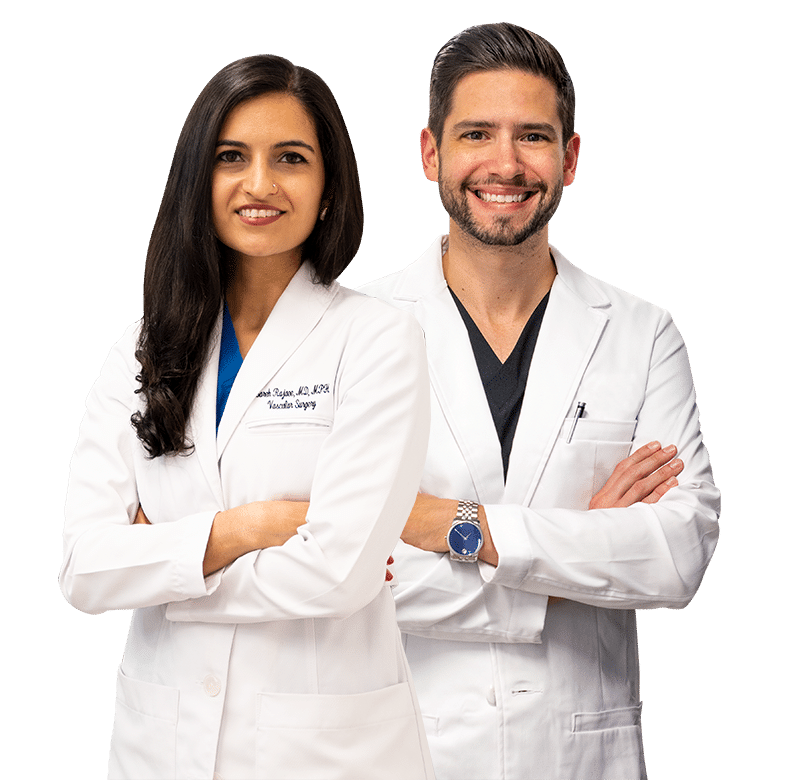
Meet our Team of Top Vein Specialists in New Jersey
Contact us
CALL US
Speak instantly with one of our team members; they will answer any questions you may have regarding insurance coverage, booking an appointment and our vein treatment locations. (973) 946-8082
BOOK APPOINTMENT
Visit our Book Appointment page and instantly request an appointment at the New Jersey vein center. We offer Free Insurance Verification before your appointment.
